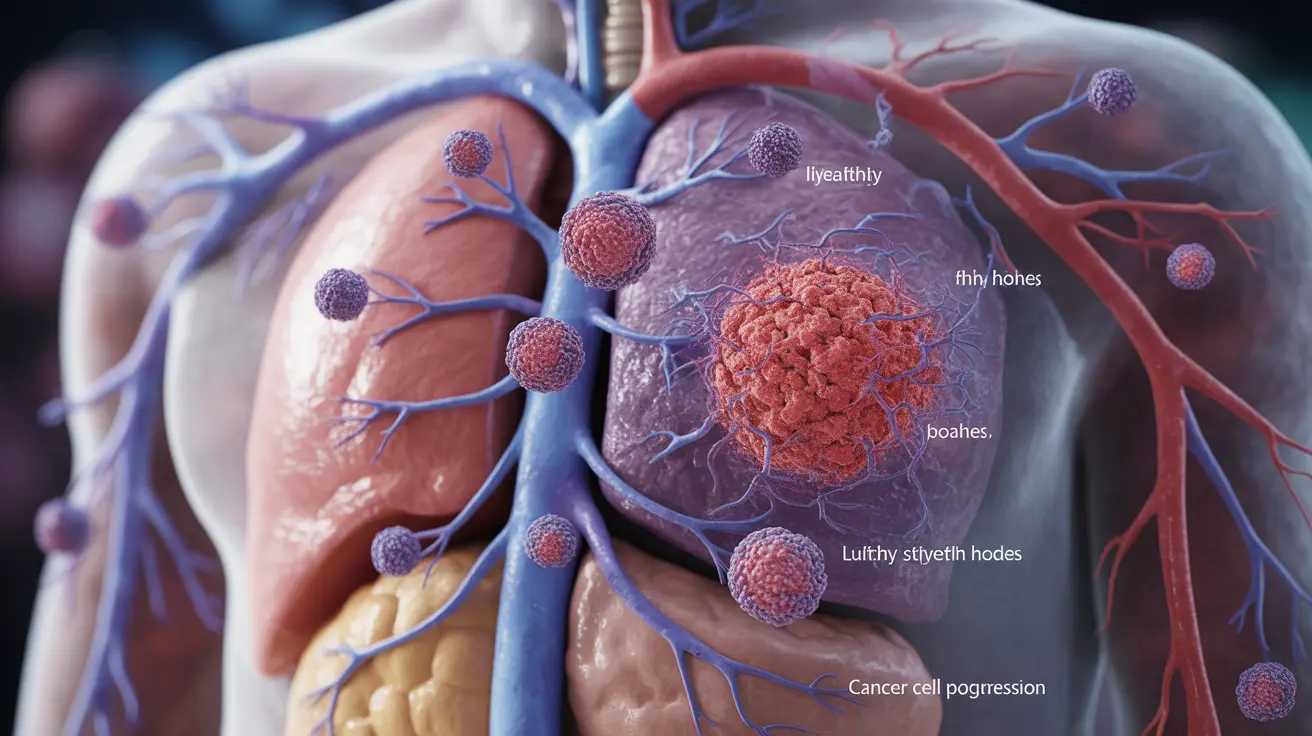Cancer is a complex disease that affects millions of people worldwide, and understanding how it impacts the body is crucial for both patients and their loved ones. While discussing end-of-life aspects of cancer can be difficult, having accurate information helps people make informed decisions about care and treatment options.
This comprehensive guide explores the various ways cancer affects the body's vital systems and organs, helping you understand the mechanisms behind cancer-related complications and their management.
How Cancer Spreads and Affects Vital Organs
Cancer primarily impacts the body through its ability to spread (metastasize) and disrupt normal organ function. When cancer cells break away from their original location, they can travel through the bloodstream or lymphatic system to establish new tumors in distant organs.
The most commonly affected organs include:
- Liver: Often a primary site for metastasis
- Lungs: Critical for oxygen exchange
- Brain: Controls vital bodily functions
- Bone: Can weaken the skeletal structure
- Lymph nodes: Part of the immune system
The Impact on Organ Systems
When cancer spreads to vital organs, it can cause serious complications by:
- Replacing healthy tissue with tumor cells
- Blocking essential blood vessels
- Competing for nutrients with healthy cells
- Creating pressure on surrounding structures
- Interfering with normal organ function
Metabolic Changes and Weight Loss
Cancer significantly affects the body's metabolism, often leading to a condition called cancer cachexia. This complex syndrome involves severe weight loss, muscle wasting, and decreased appetite, which can significantly impact a patient's strength and quality of life.
The metabolic changes occur due to:
- Increased energy consumption by cancer cells
- Inflammatory responses in the body
- Changes in hormone levels
- Decreased nutrient absorption
- Altered taste perception
Immune System Complications
Cancer can severely compromise the immune system, making patients more vulnerable to infections. This occurs through multiple mechanisms:
- Direct suppression of immune function by cancer cells
- Side effects of cancer treatments
- Malnutrition and metabolic changes
- Damage to bone marrow function
- Breakdown of natural barrier defenses
Prevention and Management of Infections
Healthcare providers work to prevent and manage infections through:
- Prophylactic antibiotics when appropriate
- Regular monitoring of immune function
- Vaccination strategies when possible
- Strict infection control measures
- Nutritional support
Chemical Imbalances and Organ Function
Advanced cancer can lead to various chemical imbalances in the body, affecting multiple organ systems. These disruptions can cause:
- Electrolyte abnormalities
- Hormone imbalances
- Blood chemistry changes
- Acid-base disturbances
- Organ dysfunction
Frequently Asked Questions
- How does cancer actually cause death, and what organs are most at risk from cancer spreading?
Cancer typically causes death by severely compromising vital organ function, particularly when it spreads to critical organs like the liver, lungs, or brain. These organs are most at risk because they receive significant blood flow, making them common sites for cancer spread. When cancer disrupts their function, it can lead to organ failure and life-threatening complications.
- What are the signs that someone with advanced cancer is nearing the end of life?
Common signs include increased fatigue, reduced appetite, weight loss, difficulty breathing, confusion or drowsiness, and decreased mobility. Physical changes may include cool extremities, changes in skin color, and irregular breathing patterns. These symptoms typically progress gradually over time.
- Why do cancer patients often lose a lot of weight and appetite, and how does that contribute to the disease worsening?
Cancer patients experience weight loss and decreased appetite due to cancer cachexia, a complex metabolic syndrome. The condition results from both the cancer's direct effects and inflammatory responses in the body. This weight loss weakens patients, reduces their ability to tolerate treatments, and can accelerate disease progression.
- Can cancer make you more likely to get serious infections, and what can be done to prevent these complications?
Yes, cancer and its treatments often suppress the immune system, increasing infection risk. Prevention strategies include proper hygiene, avoiding potential sources of infection, regular medical monitoring, and sometimes preventive antibiotics. Maintaining good nutrition and following medical advice about infection prevention is crucial.
- What happens when cancer causes severe chemical imbalances in the body, and how do these problems get treated?
Cancer can cause various chemical imbalances, including electrolyte disturbances and hormone irregularities. Treatment typically involves careful monitoring of blood chemistry, targeted supplementation, medication to correct imbalances, and sometimes intravenous fluids or specialized treatments to maintain proper body chemistry.




